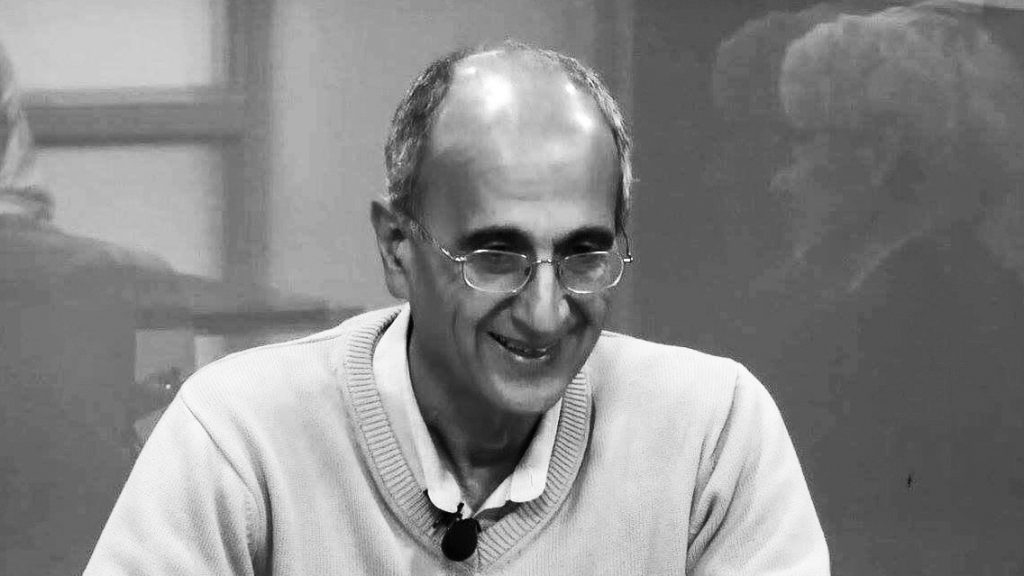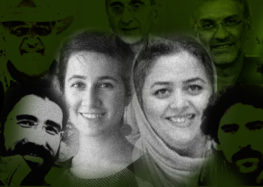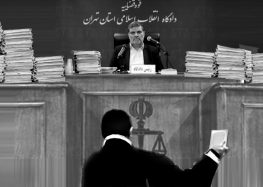Rouhani Commission on Detainee Deaths in Iran Fails to Produce Results Three Months After Formation
 The fact-finding commission set up by President Hassan Rouhani to investigate the recent spate of detainee deaths in Iran has produced no results since it was formed nearly three months ago, the lawyer of one victim’s family told the Center for Human Rights in Iran (CHRI) on May 7, 2018.
The fact-finding commission set up by President Hassan Rouhani to investigate the recent spate of detainee deaths in Iran has produced no results since it was formed nearly three months ago, the lawyer of one victim’s family told the Center for Human Rights in Iran (CHRI) on May 7, 2018.
On February 14, five days after the mysterious death of Iranian Canadian academic and environmentalist Kavous Seyed-Emami in Tehran’s Evin Prison, President Rouhani appointed his ministers of the interior, intelligence and justice as well as his vice president for legal affairs, “to carefully investigate and follow up on the particulars of this matter and present their conclusions, including any possible wrongdoings, to the president.”
But the commission has failed to produce any findings.
“It’s called a ‘fact-finding’ commission but apparently it has not even been able to contact those who were responsible for his detention and to have a meeting with them, let alone find facts,” said Payam Derafshan, one of the lawyers representing the Seyed-Emami family.
“The only thing the commission has done is one of the president’s assistant legal advisers, Ms. [Laya] Joneydi, has met with Seyed-Emami’s widow and listened to her cry and share her memories,” he added.
“But there has been no meeting with agents of the Revolutionary Guards who detained Kavous Seyed-Emami and other environmentalists to ask about the reasons for his death and why they were arrested,” he said.
The Iranian government has ignored calls by Seyed-Emami’s family and UN officials for an independent investigation into his death, which was ruled a suicide prison and judicial officials before there was an autopsy.
In addition to Seyed-Emami, at least four other people have died in custody in Iran since early January 2018: Sina Ghanbari, Vahid Heydari, Mohammad Raji, and Taleb Basati.
In a joint statement, four human rights groups including CHRI urged the Iranian authorities to “end their cruel campaign of harassment and intimidation against the families of detainees who have died in detention under suspicious circumstances.”
“The only person who has been responsive during all this time has been Mr. [Mohammad] Shahriari, the head of the judiciary’s criminal division in Tehran, who has emphasized to us that he will pursue this matter and wants us to be patient,” Derafshan said. “But whether something is actually being done and will bear results, I don’t know.”
The attorney also told CHRI that the state-imposed travel ban on Seyed-Emami’s widow, Maryam Mombeini, remains in effect.
“Mr. Shahriari is supposed to talk to the Tehran Prosecutor Abbas Dowlatabadi about the fact that she is not charged with anything and at least lift her travel ban so she can join her kids [in Canada],” he said.
“We have been going to the prosecutor’s office every week but so far they have not given us an answer,” added Derafshan.
Mombeini, who was based in Iran with her late husband and two children when the family was informed of his death, has been unable to leave the country since early March 2018 when her passport was confiscated at the airport.
On March 7, Chrystia Freeland, Canada’s minister of foreign affairs, said she was “outraged to learn” that Mombeini, who also has Canadian citizenship, had been “barred” from leaving Iran and demanded “she be given the freedom to return home.”






